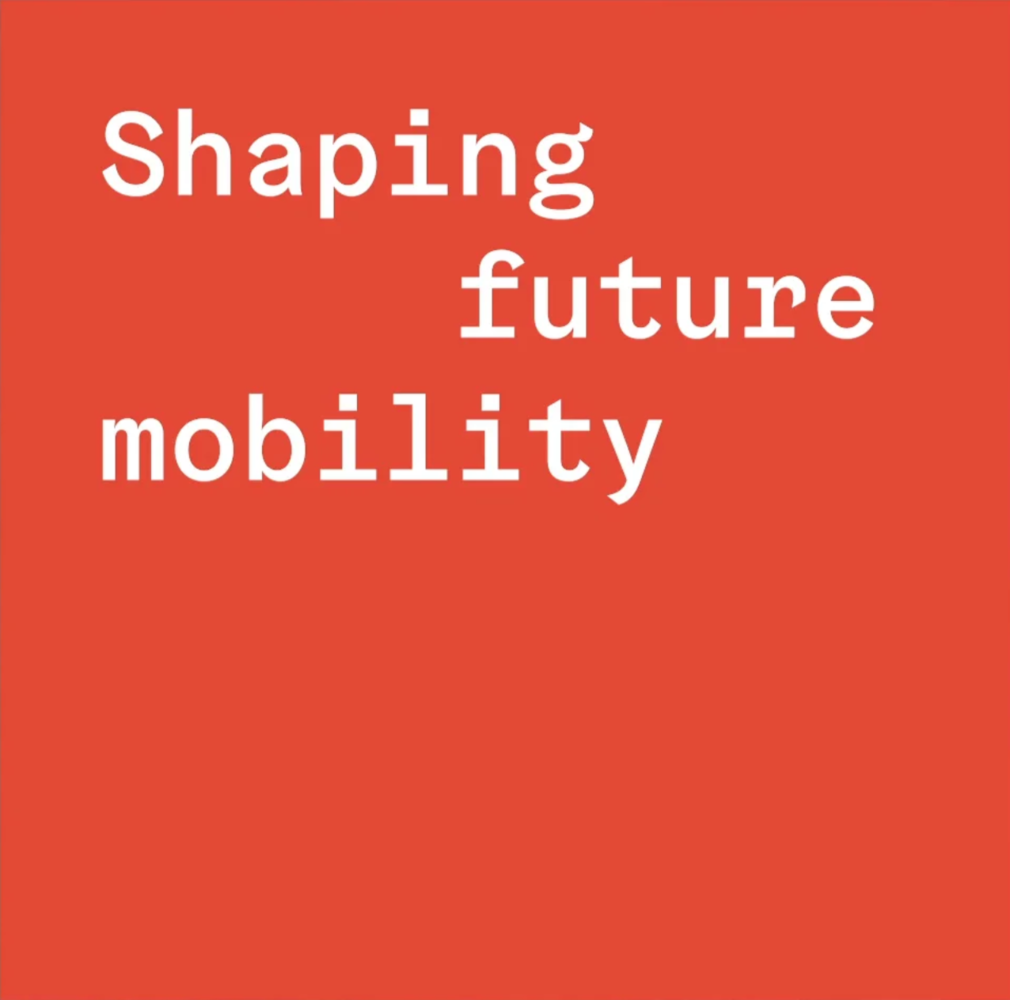Re/set mobility design: Conference recap

Kamera: Tim Seger, Haben Ghebregziabher
Postproduktion: Tim Seger
Shaping future mobility!
How design drives the development of sustainable mobility systems.
The future lies in new forms of mobility: Instead of owning a car it will be easy to use a host of different forms of transport. Mobility will become a service and will tend to be perceived not as an object and more as an intangible event. In future, digital and platform-based services will control intelligent mobility systems in which we can be conveyed »smoothly« using various mobility vehicles. These will take into account our individual wishes and needs and will be not only environmentally friendly but also comfortable and economic. It is also essential that we not only feel safe in the various mobility spaces, but also at ease – an immense challenge for the design of transportation products, spaces, processes and systems. Functional, practical, but also emotional and symbolic aspects all play a crucial role in this regard.
Design is a key factor here, as it addresses complex mobility systems holistically and contributes to a greater acceptance of inter- and multi-modal mobility offerings by providing a firm user focus.
November 7, 2019
Opening night with greetings, introduction and keynote
The conference started with greetings from Angela Dorn (Hessen State Minister for Higher Education, Research and the Arts) and Bernd Kracke (Professor, President of the HfG Offenbach). Kai Vöckler (spokesman project-mo.de, endowed Professor, HfG Offenbach) moderated the evening and Peter Eckart (Professor for Integrated Design, HfG Offenbach) was giving an introduction on mobility design.
Afterwards Carlo Ratti / USA+Italy (MIT Senseable Lab, Design and Innovation Office Ratti Associati) was captivating us with his keynote speech and his ideas of »senseable cities«. The keynote speech was followed by a discussion with Carlo Ratti, Peter Eckart and Kai Vöckler including questions from the audience. Finally, there was a come-together with music, snacks and drinks.
November 8, 2019
Second conference day with many lectures and discussions in 3 panels and 1 short talk session
International experts from the fields of design, infrastructure and architecture were presenting their ideas on future mobility and discussing them with members of the LOEWE project »Infrastructure – Design – Society« (project-mo.de). The conference was concentrating on three major areas and one short talk session:
PANEL 1: MOBILITY SYSTEMS – designing intermodal transport networks and vehicles
dealt with different objects which are moving in a mobility system and their potential to create a positive experience. This applied equally to public transport such as bus, train or metro just as it does to cars, bicycles or shared/ride-shared vehicles.
Speaker
- Ole B. Jensen / Aalborg (sociologist, urban theory/urban design)
- Jan Wielert, büro+staubach / Berlin (rail transport and public space)
PANEL 2: MOBILITY HUBS – designing the infrastructure
focused on overarching infrastructures which connect mobility hubs and enable people to access different vehicles as well as the entire mobility system including for example, architecture, urban design, planning or wayfinding systems.
Speaker
- Marten Wassmann, Benthem Crouwel / Amsterdam (main stations Amsterdam, Delft)
- David Gillam, CityID / London (Penta City Group; Wayfinding System New York)
- Cecilie Kiilerich, Copenhagenize / Copenhagen (bicycle urbanism, planning and street design)
PANEL 3: MOBILITY AS A SERVICE (MaaS) – designing digital access
explored the user’s digital interaction with a mobility system. Mobility should be seen as a service where connectivity, user experience and interfaces create seamless usability for the user.
Speaker
- Lieke Ypma, White Octopus / Berlin (mobility Services),
- Stefan Zoll, ioki / Frankfurt (on-demand-mobility, mobility service and analytics)
SHORT TALKS: MOBILITY RESEARCH – designing questions
gave insights into the project-mo.de doctoral program with interdisciplinary research and methodological aspects concerning flow, links and hubs in the Rhine/Main region.
Speaker
- Andreas Gilbert / Frankfurt (Frankfurt University of Applied Sciences)
- Dominic Hofmann / Frankfurt (Frankfurt University of Applied Sciences)
- Andreas Blitz (Goethe University )
- Julian Schwarze (HfG Offenbach)
- Marianne Halblaub Miranda (TU Darmstadt)
We would like to thank the Hessen State Ministry for Higher Education, Research and the Arts with State Minister Angela Dorn for the patronage of our conference.
Text: Kai Dreyer


























